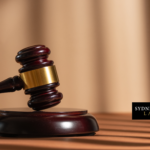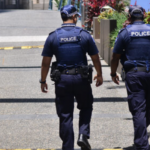Police officers must personally pay for bashing and humiliating man

Each year, police forces in Australia pay millions of dollars in compensation to people who have been mistreated by police officers. In these situations, it is really the taxpayer who foots the bill, not the guilty officers.
But while this is common practice, it does not mean that individual police officers can never be held personally liable if they act completely outside their powers and engage in disgraceful conduct.
One example is the story of Mr Henry, an Aboriginal man who was targeted and bullied by three police officers back in the 1980s. In fact, this case set a precedent on the types of damages that can be awarded in such cases.
Henry v Thompson
Mr Henry was at a dance with his partner in Queensland. Police said that he was “probably under the influence of liquor to some extent.” He was arrested for using obscene language and taken to the police watch house.
After arriving, Mr Henry was subjected to horrendous police brutality and humiliation. He was punched by two officers: Thompson and Doolan, who then knocked him down and kicked his head and shoulders.
Mr Henry tried to get away from the attack but a third police officer, Smith, caught him before he reached the door and pushed him down. Smith was the officer in charge of the police station at the time.
While Mr Henry was lying on the ground, Thompson repeatedly jumped on his head and shoulders, and Doolan urinated on his stomach.
Interestingly, the individual police officers in this case were sued – not the police force.
In Court, the judge found that the three officers had acted in “conscious and contumelious” disregard of Mr Henry’s rights, and awarded him $25,000.
The police officers appealed the decision on the basis that the amount of damages was “manifestly excessive”.
But the officers got a scathing reception when they came before the Queensland Supreme Court, who confirmed the amount of compensation.
The Supreme Court Judge characterised the conduct of the officers as “inhuman” and “calculated to cause the greatest possible insult and humiliation.”
The Judge noted that Mr Henry had been greatly affected by the incident. Aside from the physical assault he suffered, being urinated on was incredibly insulting. Mr Henry broke down as he told a doctor about the incident the following day, and gave testimony in court that “it upset me a lot. You can’t say it in words.”
Mr Henry’s wife threw the clothes he had been wearing into the bin due to the smell of urine.
The Judge continued:
“The act of urination in the course of an assault would…call for an award of aggravated damages. But when the guilty party is a police officer, a person in authority, and the act is performed in the presence of other senior ranking police officers, the incident cries out for an even higher award. And finally, when one adds into the case the racial overtones present here, then a jury assessment of the appropriate award for aggravated damages is largely unrestrained. It hardly lies in the mouths of the appellants to complain that the award is too high.”
Unfortunately, instances where police officers who misbehave are forced to face the music are rare. The vast majority are allowed to continue on in their job, and only a small fraction face criminal charges or civil proceedings. But while few officers are ever personally held to account for their actions, it is certainly reassuring to know that they can be.






